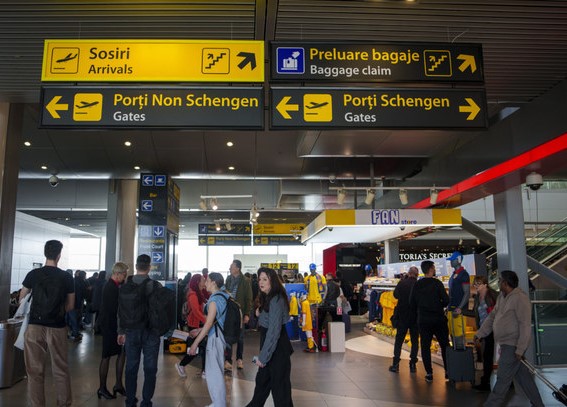BUCHAREST: Bulgaria and Romania joined Europe’s vast Schengen area of free movement on Sunday, opening up travel by air and sea without border checks after a 13-year wait.
A veto by Austria, however, means the new status will not apply to land routes, after Vienna expressed concerns over a potential influx of asylum seekers.
Despite the partial membership, the lifting of controls at the two countries’ air and sea borders is of significant symbolic value.
Admission to Schengen is an “important milestone” for Bulgaria and Romania, symbolizing a “question of dignity, of belonging to the European Union,” according to foreign policy analyst Stefan Popescu.
“Any Romanian who had to walk down a lane separate from other European citizens felt being treated differently,” he told .
Ivan Petrov, a 35-year-old Bulgarian marketing executive who lives in France, said he was enthusiastic about less stressful traveling and the time he would be able to save.
“This is a great success for both countries, and a historic moment for the Schengen area — the largest area of free movement in the world,” EU chief Ursula von der Leyen said in a statement Saturday.
“Together, we are building a stronger, more united Europe for all our citizens.”
With Bulgaria and Romania arriving joining Sunday, the Schengen zone will comprise 29 members — 25 of the 27 European Union member states as well as Switzerland, Norway, Iceland and Liechtenstein.
Romania’s government said Schengen rules would apply to four sea ports and 17 airports, with the country’s Otopeni airport near the capital Bucharest serving as the biggest hub for Schengen flights.


